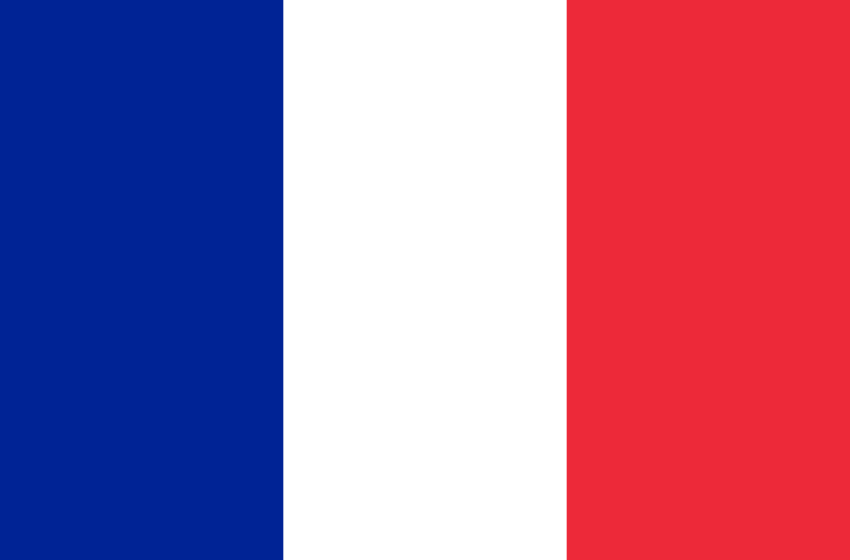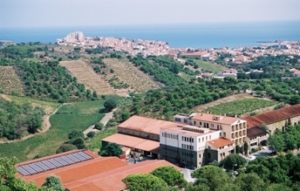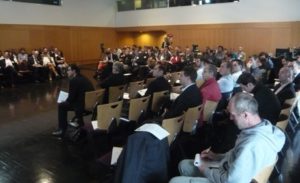France: Solar Thermal Energy under Review
November 1, 2013
On 11 October, around 100 solar thermal specialists followed the invitation of the French Environment and Energy Management Agency, ADEME, to Paris, France, in order to discuss the unsatisfying situation of the French solar heating and cooling market. The meeting included a presentation of the results of the recently finalised study “Analysis of the competitiveness and development of the solar thermal sector in France” (official summary not yet available). An action plan is intended to show the industry how to become more competitive.
The introduction of Rémi Chabrillat, responsible for Production and Sustainable Energies at ADEME, sounded like a warning: “The industry seems to have plenty of options out there [, such as incentives, regulations, tax credits,] and nothing goes as planned. Prices do not fall, sales don’t take off. We are worried for the industry – it has reached a crossroad.” He added that the agency could not resist the pressure of the Ministry of Economy indefinitely. “We need tangible results in the near future with lower prices and systems that work.”
Public pressure has increased since the Court of Auditors report (see attached document) “Policy of Renewable Energy Development” was published in July 2013. The study had identified solar heat as the most expensive renewable energy in France in terms of EUR per MWh. The Union of Professionals in Solar Energy, Enerplan, has disputed the high costs of 162 to 563 EUR/MWh stated by the Court of Auditors (see page 42). Enerplan has pointed out that the high cost range only applied to very specific installations, such as to systems in multi-family buildings in overseas territories, with individual hot water tanks in each flat. In addition, Enerplan believes that the stated costs include some expenses not related to solar. According to Enerplan’s own calculations, solar thermal costs 70 to 140 EUR/MWh. Enerplan´s calculation is based on a discount factor of 0.05, whereas the Court of Auditors calculated with a factor of 0.08. The discount factor is used to convert the anticipated returns from an investment to their current market value. “The use of simple technologies, such as drain-back systems, helped to lower installation costs by approximately 20 % in two years,” François Gibert, Vice President of Enerplan, adds. “With this technology, the water temperature does not exceed 95 ° C. The purchase price is the same as a conventional solar water heater, but maintenance and installation costs less.”
As important as high system prices are the quality problems that a lot of systems have been facing. In fact, it was one of the key findings of the study “Analysis of the competitiveness and development of the solar thermal sector in France”. The survey, which was commissioned by ADEME and carried out by engineering and market research company Tecsol from France, audit network Ernst & Young’s and Belgian solar thermal specialist Trenkner Consulting, is based on 34 interviews and informal statements. It provides an alarming report on system quality, especially of systems at multi-family buildings, which accounted for half of the sales volume in France in 2012. The quality problems were mainly due to a lack of training. According to the training division of the National Solar Energy Institute, INES Education, 80 % of professionals in the solar thermal sector have not been adequately trained. All parts of the value chain are affected. Teddy Puaud, Technical Director at Qualit’EnR, ensures that the quality has improved significantly for individual installations, but the problem is still relevant for larger systems.
The report proposes a series of recommendations to solve the ongoing difficulties, among them better training and improved hydraulic schemes. The latter was seen as a crucial item for the experts at the workshop, which involved intense discussions about standardised or even compulsory hydraulic schemes for multi-family houses.
The professional website Socol took the first step by publishing an online library of hydraulic schemes which have not been used widely enough among solar thermal professionals. When it comes to monitoring installations, the document calls for an end to the very expensive preventive visits and advises to combine periodic monitoring with corrective maintenance.
Where does the industry go from here? Enerplan will soon submit an action plan to the Ministry of Productive Recovery, which has a budget allocated to sector restructuring until the end of 2013. “The goal is to improve communication and get all stakeholders to provide easy-to-implement and competitive products,” Gibert explains. He hopes it will push the industry to coalesce around projects creating innovative products, such as heating networks and automated performance monitoring.
This article was written by French author and solar thermal specialist Lydie Bahjejian based in Paris.
More information:
http://www.enerplan.asso.fr
http://www.trenknerconsulting.com
http://www.ey.com
Library patterns Socol principle
http://www.solaire-collectif.fr/upload/data/Schema_de_principe.pdf


